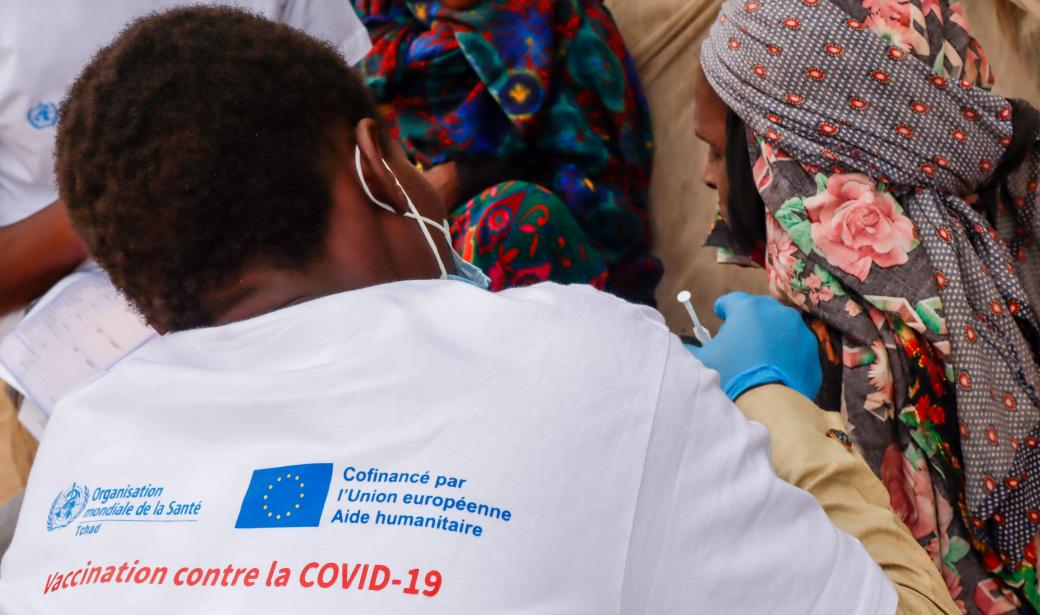Baga Sola – In the health district of Baga Sola in Chad’s western Lake province, mobile clinics have played a pivotal role in ensuring that the country’s most vulnerable populations can access COVID-19 vaccines.
Chad is currently home to 381 000 internally displaced persons, while insecurity across the Lake Chad Basin region has seen it absorb 583 000 refugees from neighbouring countries. Then there is the country’s nomadic population, which numbers more than 597 000 people. With support from the European Union through World Health Organization (WHO), these three groups, who have limited access to health services, have been prioritized for vaccination against COVID-19.
At the end of March 2023, nearly 4.8 million people in Chad had been fully vaccinated against COVID-19, representing 56% of adults aged 18 and above. This includes more than half of the country’s refugee population and about 10% of its nomadic population.
As part of the efforts to provide COVID-19 vaccination to hard-to-reach communities such as those living in Lake Province, health workers deploy to remote locations and set up vaccination stations to increase access and vaccine uptake.
"With nomads, our work is not easy. You can see them one day, then two or three days later they are already gone," she says.
"We use mobile clinics to deliver care to populations that are at least eight kilometres away from a health centre. With COVID-19 vaccination, we have strengthened this mobile strategy to be able to vaccinate people where they are," says Dr Cyril Rozoumka, the head doctor at Baga Sola district hospital. "This has been a significant factor in achieving good coverage.”
During the most recent such campaign between 28 February and 12 March 2023, more than 21 000 people from the nomadic communities were vaccinated.
"Nomadic populations have poor access to health services than sedentary populations. They are also susceptible to COVID-19 infection and transmission, which is why it is important for them to be vaccinated," says Dr Adama Nanko Bagayoko from the WHO Chad sub-office in Bol, the capital of the Lake province.
“I’m contributing to protect my community from diseases. I not only sensitize the community about COVID-19, I also raise awareness in camps about hygiene and childhood vaccination”, add Youssouf.
As she and the mobile health team pack up and return to their vehicle to prepare to move on to their next post, Halima Abdrahim thanks them and wishes them well. "We are happy because we are now protected from this disease," she says.
Communications Officer
Regional Office for Africa
Email: lawsonagbluluf [at] who.int (lawsonagbluluf[at]who[dot]int)
Chargée de Communication
OMS Tchad
Email : coumbalay [at] gmail.com (coumbalay[at]gmail[dot]com)



